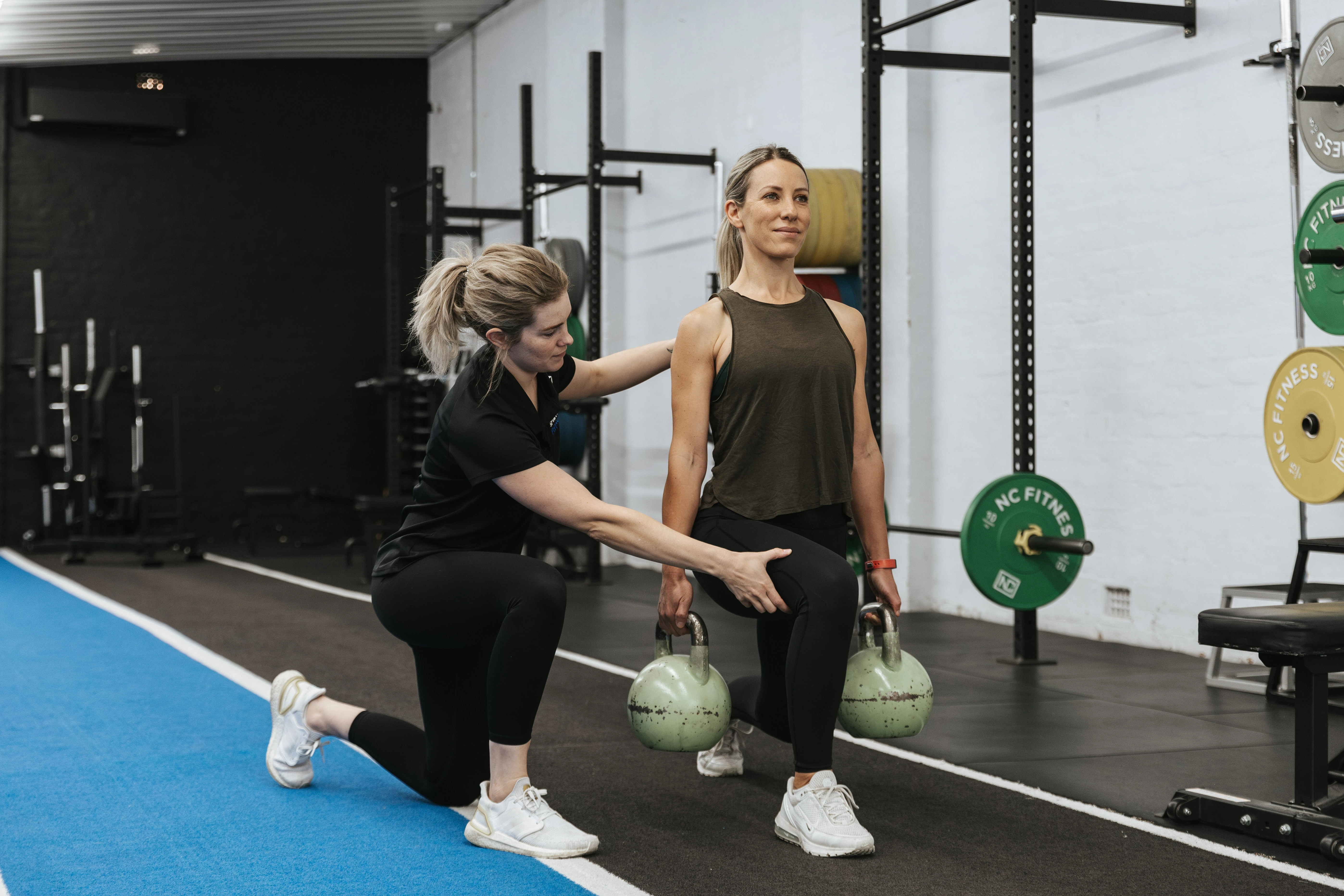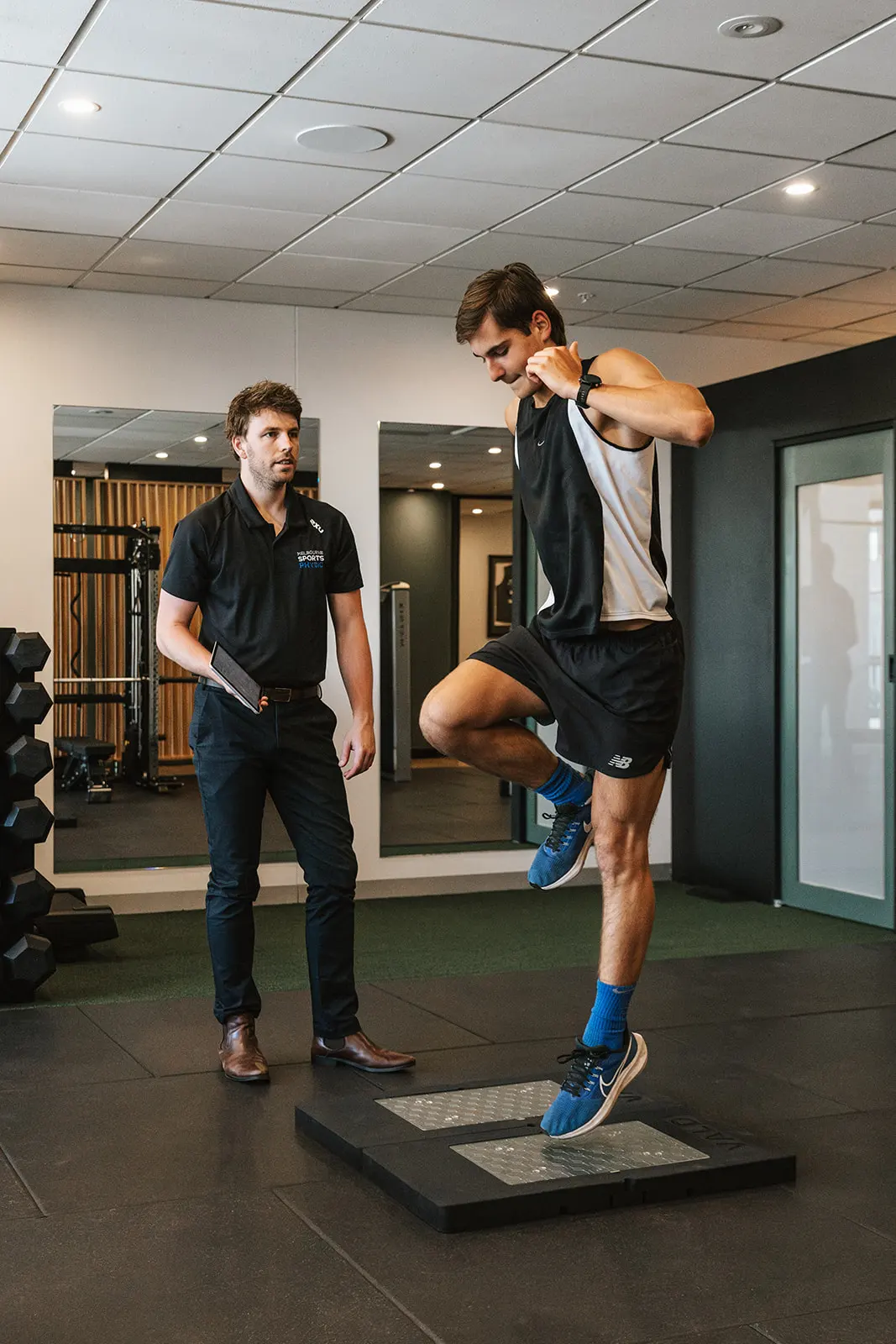May 2025
Jess Carter, Physiotherapist
Physiotherapy After Knee Arthroscopy: What You Need to Know
Knee arthroscopy is a common and minimally invasive procedure used to diagnose and treat knee problems.
While surgery can treat the root cause of the problem, a strong rehabilitation plan is necessary for a full recovery.
Physiotherapy plays a key role in helping patients regain strength, mobility, and function after a knee arthroscopy.
In this article, we’ll explore why physiotherapy is crucial after knee surgery, when to start, the recovery process, and the types of exercises commonly used.
What is Knee Arthroscopy?
Knee arthroscopy is a surgical procedure that allows surgeons to view the inside of the knee joint and treat various conditions, such as torn cartilage, ligament damage, or meniscus tears.
A small camera (arthroscope) is inserted through tiny incisions in the knee, providing the surgeon with a clear view of the joint.
The procedure is minimally invasive, meaning that it requires only small cuts and usually involves less pain, scarring, and a shorter recovery time compared to traditional knee surgery.
What our clients are saying about us
Importance of Physiotherapy Post Knee Arthroscopy in Melbourne
Physiotherapy is essential after knee arthroscopy for several reasons. While the surgery may address the underlying issue, it’s the rehabilitation process that ensures you regain full function and mobility of your knee.
Here are some of the key benefits of physiotherapy:
-
Pain Management: Physiotherapists can guide you through gentle movements and stretches that help reduce pain and inflammation, especially in the early stages of recovery. They will advise on the use of mobility aids, compression garments, ice therapy and begin exercises to promote optimum recovery.
-
Restoring Mobility: Following surgery, it’s common to experience stiffness and limited movement. Physiotherapy helps restore the range of motion in the knee joint, improving flexibility and reducing the risk of permanent stiffness. This can be done using manual therapy techniques including massage or joint mobilisation, however completing exercises away from your appointments is integral for maintaining and improving in session progress.
-
Strengthening Muscles: After surgery, the muscles around your knee may weaken due to disuse or the surgical procedure itself. Physiotherapy focuses on strengthening these muscles, particularly the quadriceps, hamstrings, gluteals, and calf muscles, which are critical for knee stability. This commences with isolated strengthening exercises which can be completed at home and progresses to functional exercises so the knee can cope with everyday and sporting demands.
When Should Physiotherapy Exercises Start After a Knee Arthroscopy In Melbourne?
The timing of physiotherapy depends on the extent of the surgery and your personal recovery. However, it’s generally recommended to start physiotherapy as soon as your doctor gives the green light, which is often just a few days after surgery.
-
Immediately Post-Surgery (First Week): Early physiotherapy focuses on reducing swelling, promoting movement and encouraging muscle activation. This can include range of motion and gentle strengthening exercises.
-
2 to 4 Weeks After Surgery: As you heal, physiotherapy will focus on regaining strength and flexibility. We have VALD strength testing technology to tailor and progress your exercise program and show improvements in strength over time. Exercises can be home based or in the gym focusing on your specific needs. They will be progressed based on meeting objective milestones and achieving your goals.
-
6 to 12 Weeks After Surgery: By this point, your physiotherapist will introduce more challenging exercises to restore functional movement and prepare you for returning to regular activities or sports. This includes functional strengthening exercises, return to running programs, plyometric activities and agility training. Each program is specific to your goals and requirements of your daily activities and sports.
Recovery Time after a Knee Arthroscopy - How long does it take?
The recovery time after knee arthroscopy can vary depending on the specific procedure, how long the condition has been present for, your overall health, and how well you follow the rehabilitation plan. Generally, you can expect:
-
Initial Recovery: Most patients experience a rapid initial recovery and can resume light activities within 1 to 2 weeks. In this time pain and swelling reduces and light exercises have commenced.
-
Subacute Recovery: Between post-operative initial recovery and full recovery or return to sport is subacute recovery. This can take anywhere from 3-6 months, or longer in more complex surgeries. This is often when people are pain free and performing most of their daily activities. However, there are often still deficits in the knee including maximal strength, ability to change direction, or control their knee under load such as jumping or hopping. Therefore end stage rehabilitation is required to reduce the chance of reinjury and promote confidence in full recovery.
-
Return to Sports: Athletes may need around 4 to 6 months to safely return to high-impact sports, depending on the nature of their surgery and rehabilitation progress. This time is necessary to allow for post-operative healing, a graded strengthening program and practice specific movements required of sports.
Your physiotherapist will monitor your progress and tailor the rehabilitation to your needs, ensuring that your recovery stays on track.
Final Thoughts: Physiotherapy is Your Long-Term Partner Following Knee Arthroscopy
Physiotherapy is an essential part of recovery after knee arthroscopy. It helps you regain strength, mobility, and flexibility, while also preventing complications and reducing the risk of future injuries.
By following a structured rehabilitation plan, you can recover quickly and return to your daily activities and sports with a fully functioning knee.
How can we help you?
At Melbourne Sports Physiotherapy our goal is to get you moving pain free as soon as possible.
But, we also want you to actually move better and live a healthier, more active and fulfilling life!
If your sports, fitness training or work has been wearing your body down, book in with one of our expert massage therapists so we can help you reduce your pain or stiffness.
If you are showing some signs of this condition or simply want help prevent this from happening in the future then book in with one of our highly experienced Remedial Massage Therapists today!
You can make an appointment by calling or booking online.



